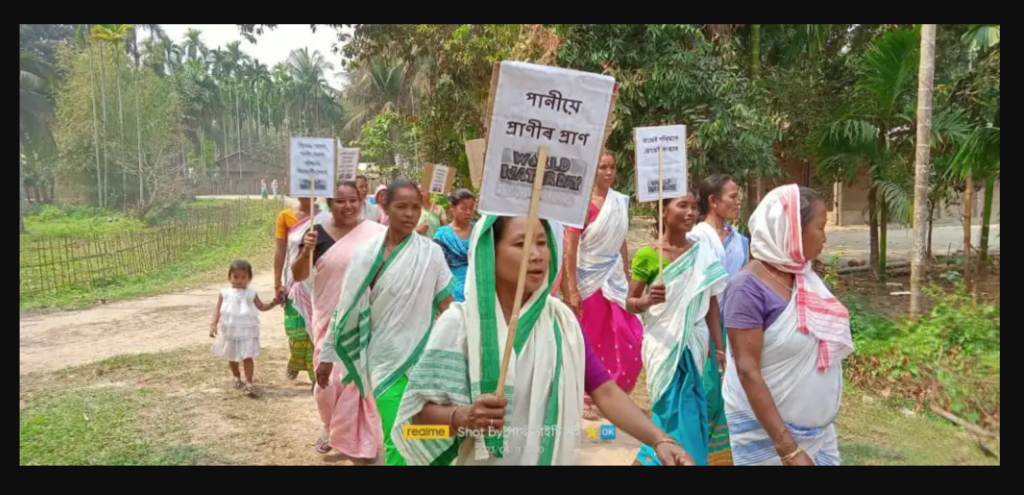A group of tribal women hailing from a small village in Assam has taken over the responsibility of ensuring supply of clean drinking water to households and water security, finds out PROYASHI BARUA
Guwahati
The tribal womenfolk of Balisordoloni village, situated in the Amsoi area that falls on the border between Nagaon and West Karbi Anglong in Assam, are a living testimony of how women can play a meaningful role in water security.
It all started in the year 2015, when the village was grappling with a severe crisis of clean drinking water. The women groups started approaching all administrative corridors (from the PHE office to the office of the local MLA) for a solution.
Their efforts finally fructified by way of a water supply scheme (The Balisordoloni Piped Water Supply System) that was sanctioned and established in the village. However, initially the scheme could not function properly owing to technical and administrative issues.
So, in 2020, it was incorporated into the world’s biggest water supply project, Jal Jeevan Mission, and became functional — providing clean drinking water to 150 households.
ARHI, a folk culture research centre of North East India, is the Implementation Support Agency of Jal Jeevan Mission.
“We were instrumental in forming the ‘water users’ committee’ in Balisordoloni village where all members are women belonging to the Tiwa and Karbi tribes,” Dibya Jyoti Borah, President, ARHI, tells The Indian Tribal.

This ‘water users’ committee’ is playing a critical role in engaging the communities to plan, design, implement, manage, operate and maintain the village water supply infrastructure. Essentially, the all-women committee members are taking ownership of water resource management, water supply and grey water treatment and its reuse.
The Balisordoloni village has been experiencing positive changes after these tribal women took charge of the water supply. Today, all households have access to safe and adequate drinking water within their premises.
Borah explains, “The decentralized, community-managed implementation of the programme has instilled a ‘sense of ownership’ among the local community and created an environment of trust. Since individual households enjoy an equitable supply they are also willing to pay for the water services.”
Lakshita Pator, Secretary of the water users’ committee, says, “Earlier, the entire village had to depend on one well in which water level depleted drastically. The people of our village are too poor to put a hand pump on their own or bear the cost of private boring.”
However, even today the women are experiencing challenges with regard to implementation of this scheme. There are frequent power cuts in the village leading to irregular supply of water.
The Indian Tribal was informed that although a generator has been placed for the scheme, it is not functional due to non-availability of fuel. “Now the committee has decided to run the generator using community contributions,” shares Borah.

Challenges aside, the active engagement of the tribal women in water security has been very empowering for them. In the words of Purneshwari Sinarpi, President of the committee, “We were bearing most of the brunt of the water scarcity as we engage in all household chores which require water.”
Amsoi in Nagaon district in Assam has a widening demand-supply gap and this is compounded by challenges like depletion of groundwater caused by over-extraction, erratic rainfall due to climate change and presence of contaminants in ground water among others.
Today, owing to this women-led initiative, there is a much lower rate of water-borne diseases and less depletion of ground water by habitants.
Article Credits: The Indian Tribal
